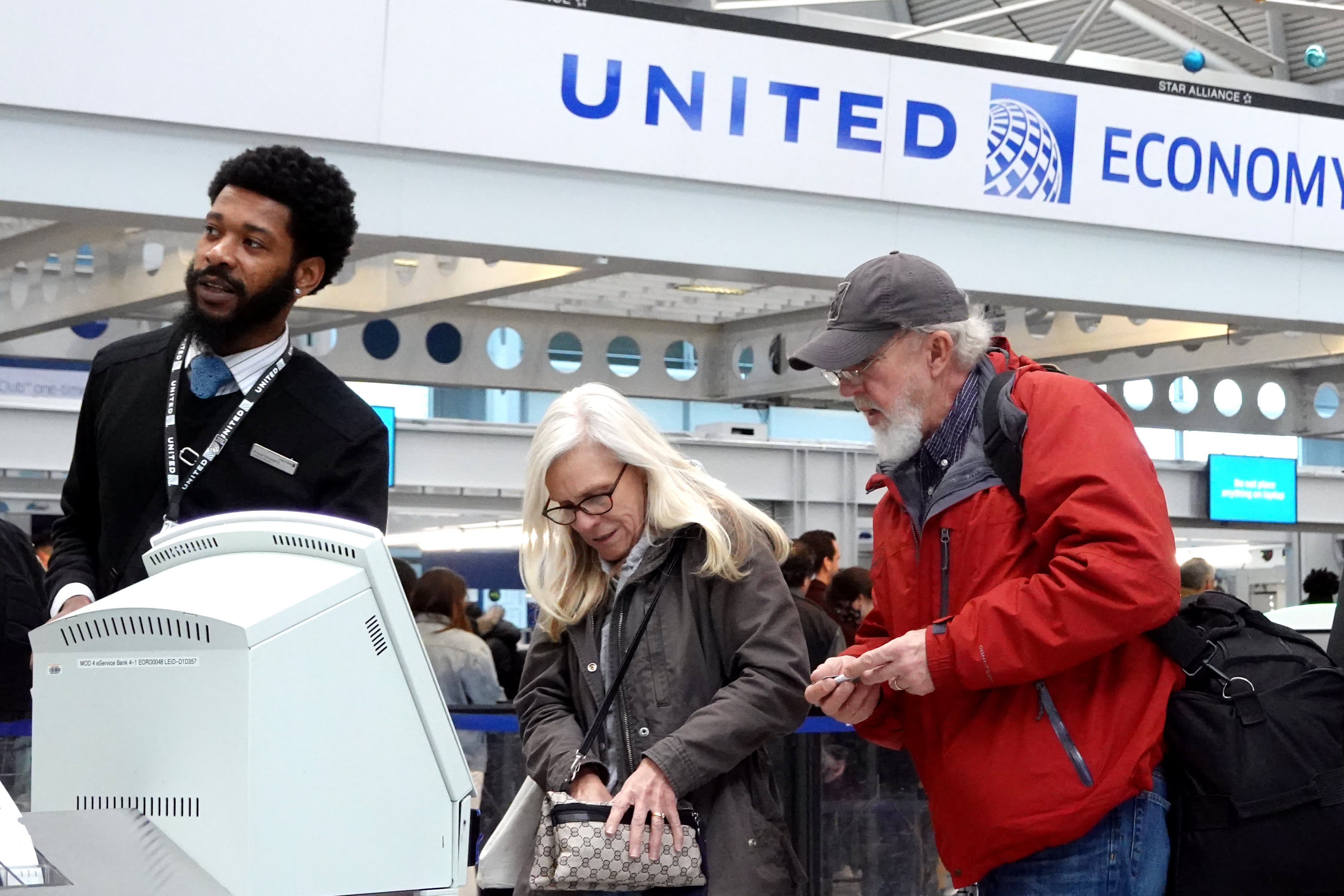
Passengers check in for United Airlines flights at O’Hare International Airport in Chicago, Illinois, Dec. 13, 2022.
Scott Olson | Getty Images
United Airlines said Thursday it will start sending meal and hotel vouchers for disrupted travel to passengers’ phones, in hopes of avoiding customer service bottlenecks at airports and long hold times at call centers.
That means rather than stand in line at a customer service desk or dial up an agent, affected travelers can access their vouchers right on their smartphones through the airline’s app or website. United said the updates will make it easier for travelers to rebook, track bags and retrieve vouchers.
“You’re already stressed out,” Linda Jojo, United’s chief customer officer, said in an interview. “We don’t want you to wait in line.”
The airline provides food vouchers for flight disruptions of at least three hours caused by the airline, such as a maintenance or technology issue, and hotel vouchers when travelers are forced to stay overnight because of a delay or cancellation caused by the airline, Jojo said. Weather disruptions don’t fit those definitions, she said.
Source: United Airlines
Jojo acknowledged that some travelers might not be comfortable with or able to use smartphone technology and the airline’s app.
“The more we can help the people who are technically savvy, the more we can take the time to help folks who are not technically savvy,” she said.
Customer compensation and benefits during flight disruptions have recently drawn the attention of the Biden administration. The Transportation Department last month said it would seek new rules to require airlines to compensate passengers for delays and cancellations.
Last year, about 2% of flights were canceled from April 1 through June 19, while nearly 22% were delayed, according to flight-tracker site FlightAware. The rate of delays for the same time period this year is similar, but only about 1% of flights were canceled.
This article was originally published on CNBC

